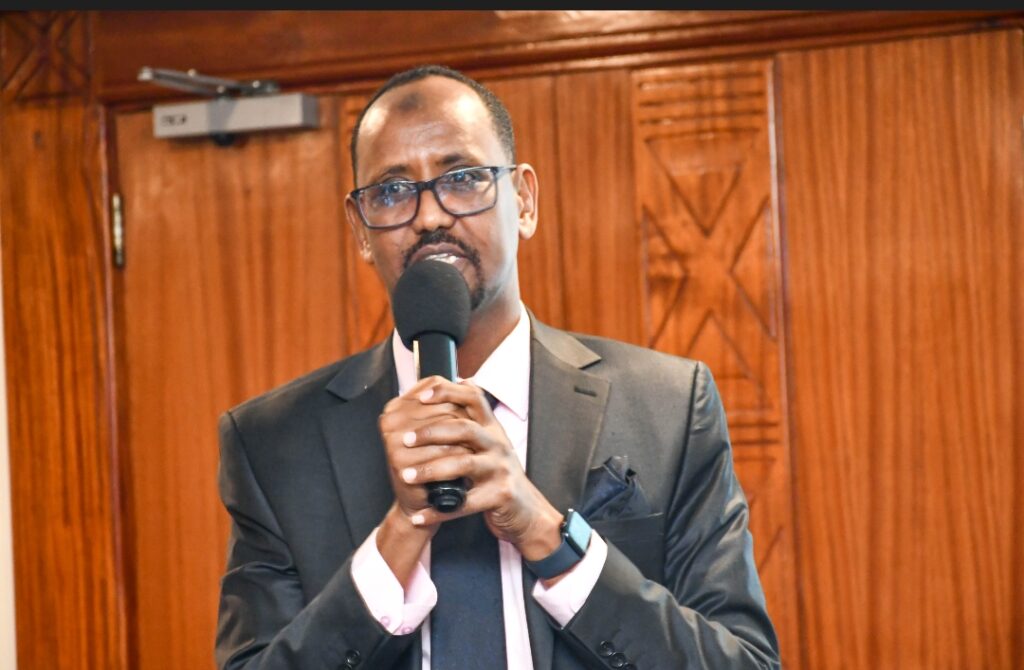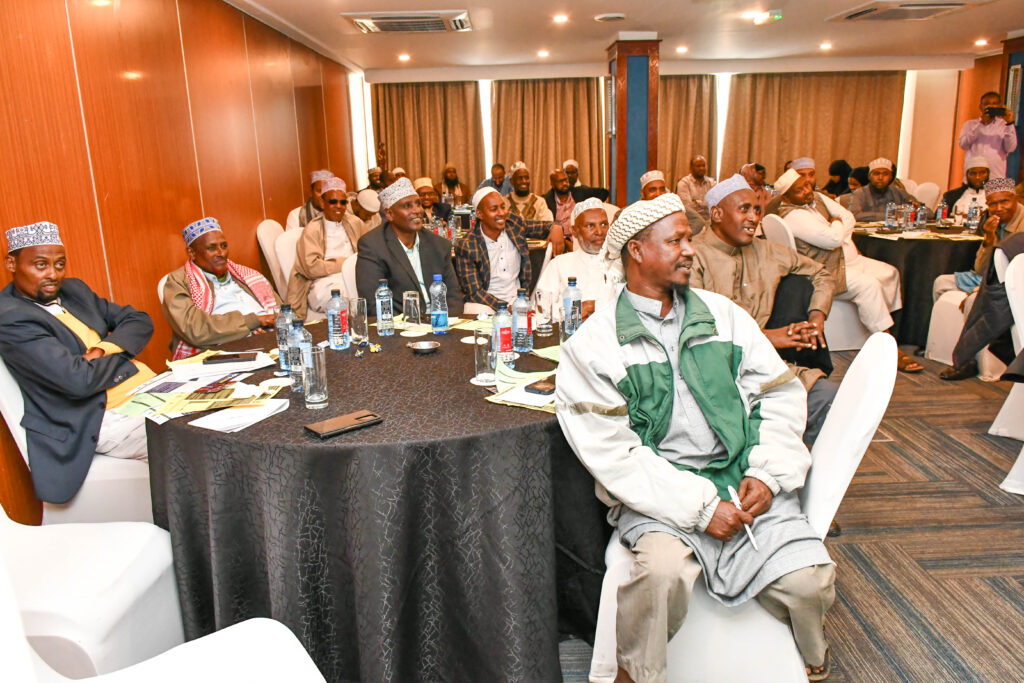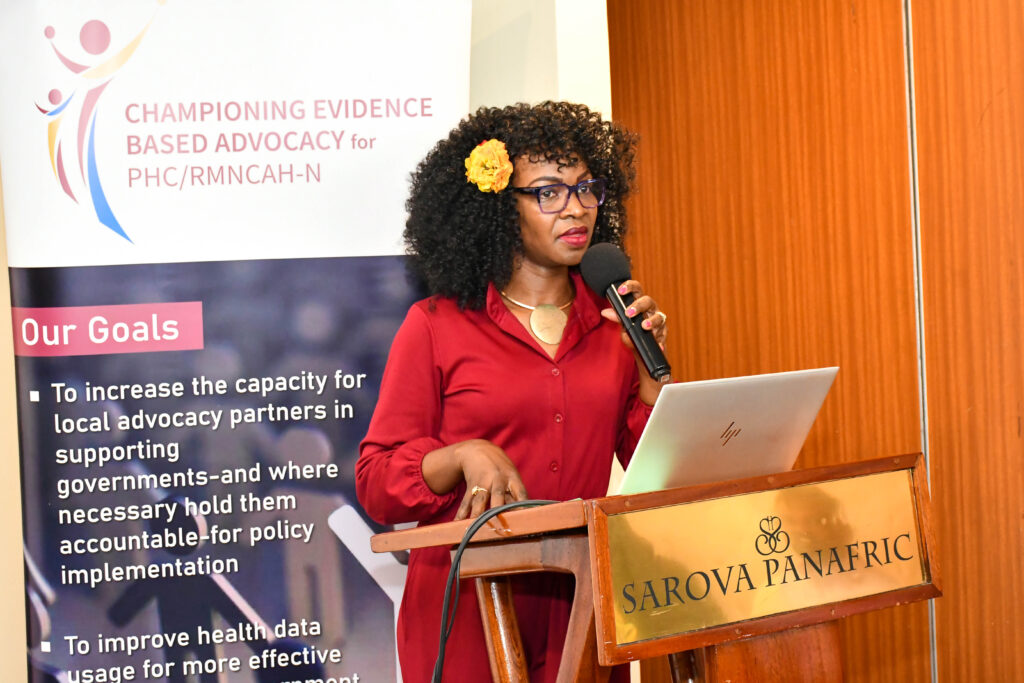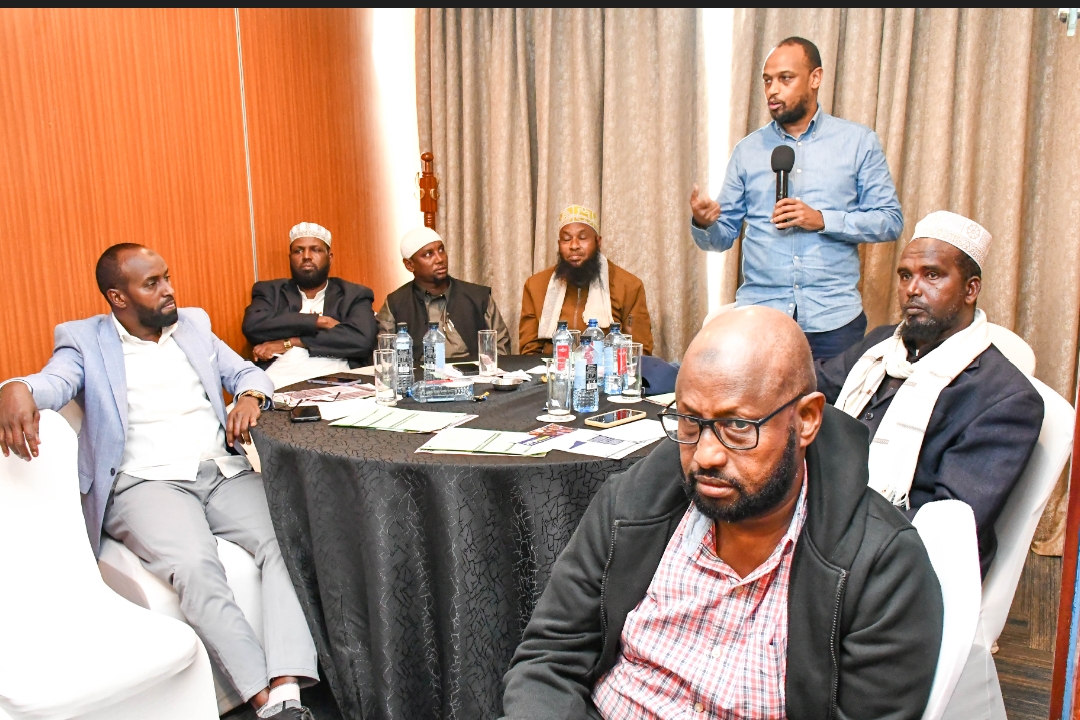The Kenya Paediatric Research Consortium (Keprecon), through its Championing Evidence Advocacy (CEBA) project, today hosted a crucial knowledge-sharing meeting with religious leaders from Kenya’s Northeastern Region.
The gathering, held at the KMA Centre in Upper Hill, Nairobi, aims to empower these influential community figures to effectively advocate for Primary Health Care (PHC) and Reproductive Maternal Neonatal Child and Adolescent Health and Nutrition (RMNCAH+N), with a particular focus on increasing uptake of the Human Papillomavirus (HPV) vaccine.

The full-day session is designed to equip religious leaders with the necessary tools and understanding to address health disparities in their communities. Participants are gaining a deeper awareness and understanding of the importance of HPV vaccination in preventing cervical cancer, while also having the opportunity to address and clarify cultural and religious concerns around the HPV vaccine to foster greater community acceptance.
Ultimately, the meeting seeks to strengthen the role of religious leaders as advocates for HPV vaccination uptake within their counties and continue reinforcing the message of policy acceptance and working towards enhancing local funding for the RMNCH+N program in its entirety.
The meeting has drawn a significant turnout, including the Deputy Governor of Mandera County, two First Ladies from Wajir and Isiolo, and prominent leaders from county government healthcare departments. Notably, a large representation of religious leaders, including those from the Supreme Council of Kenya Muslims (SUPKEM), are in attendance, underscoring the collaborative spirit of the initiative.
According to Keprecon, the Northeastern region faces significant challenges in RMNCAH+N, primarily due to issues of equity and a lack of readily available information.

“A reason for the lack of information by these communities may stem from not being informed,” stated a press statement released by Keprecon.
To counter this, the knowledge-sharing session aims to bridge the information gap, ensuring that those with vital health knowledge can effectively disseminate it to community advocates.
Reports from leaders in the Northeastern region indicate low immunization rates for both routine vaccines and HPV vaccines. This knowledge-sharing session is therefore seen as a critical step in empowering religious leaders with the necessary information to become champions for increased HPV vaccination, ultimately contributing to improved public health outcomes in the region.

The initiative is spearheaded by Professor Fredrick Were, Chief Executive Director of Keprecon, a renowned Professor of Perinatal and New-born Medicine. Keprecon, with its board of directors including Chairman Dr. Bernhards Ogura and Vice Chairman Prof. Dalton Wamalwa, is committed to advancing paediatric research and advocating for better health outcomes for children and adolescents in Kenya.
